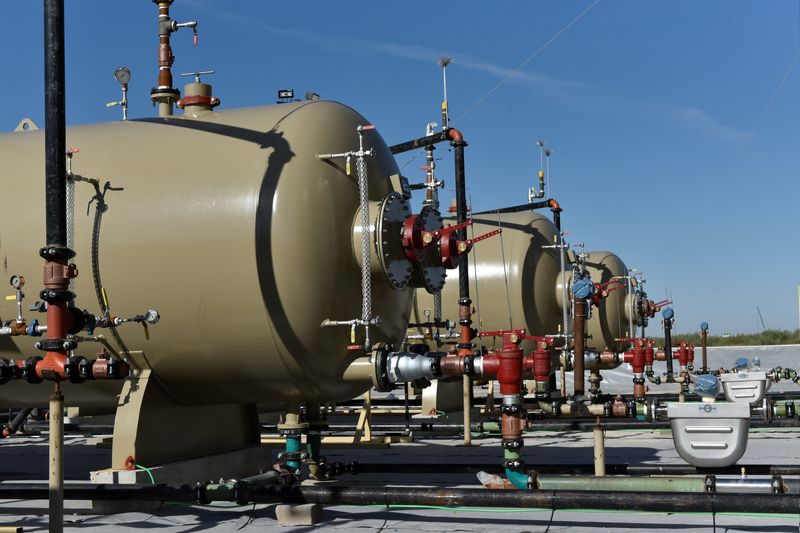By Natalie Grover
LONDON (Reuters) - A year after the closure of the Iraq-Turkey oil pipeline, the conduit that once handled about 0.5% of global oil supply is still stuck in limbo as legal and financial hurdles impede the resumption of flows, three sources told Reuters.
About 450,000 barrels per day of crude once flowed through Iraq's northern oil export route via Turkey, and its closure has led to the loss of roughly $11 billion to $12 billion for Iraq, the Association of the Petroleum Industry of Kurdistan (APIKUR) estimates.
A restart is not being discussed at the moment, one of the sources with knowledge of the matter told Reuters.
Ankara halted flows on March 25, 2023, after an arbitration ruling found it had violated provisions of a 1973 treaty by facilitating oil exports from the semi-autonomous region of Kurdistan without the consent of the Iraqi federal government in Baghdad.
The court ordered Ankara to pay Baghdad $1.5 billion in damages for unauthorised exports between 2014 and 2018. A second ongoing arbitration case covers the period from 2018 onwards. The countries remain embroiled in a protracted legal tussle, two sources familiar with litigation said.
Meanwhile, Iraq owes Turkey minimum payments as long as the pipeline is technically operational - estimated by consultancy Wood Mackenzie at around $25 million per month - as part of the treaty, in theory providing an incentive to restart flows.
But with Iraq deepening oil export cuts as part of OPEC+'s broader mission to support oil prices, a resumption of northern flows is not on the agenda, two sources told Reuters.
POLITICAL LANDSCAPE
Geopolitical factors are also a stumbling block. The Iraqi government's strained relations with the Kurds, a feature of Iraq's political landscape since Saddam Hussein was toppled in the 2003 U.S.-led invasion, have recently soured further.
The United States, which would benefit from the pipeline restart lowering oil prices, has also made a handful of attempts to help broker a deal, said Michael Knights, an Iraq expert at the Washington Institute think-tank.
But with war raging in Ukraine and Gaza, the U.S. government is spread thin, he said. "They've tried to fix this problem about five or six times. And they're tired of it."
The U.S. State Department did not respond to a request for comment.
Also key to any restart deal are the international oil companies operating in the Kurdistan region, who were forced to halt exports as a result of the pipeline closure. Instead, they can only sell oil locally in Kurdistan at a significant discount.
With more than $1 billion collectively owed in overdue payments for oil delivered between October 2022 and March 2023, according to APIKUR, the group continues to push for compensation in line with their contracts.
The companies have also collectively lost more than $1.5 billion in direct revenue since the closure, the group said.
Despite several meetings, neither APIKUR nor its members have received any formal proposals or agreements from Iraqi or Kurdish officials that would lead to a resumption of exports, an APIKUR spokesperson said.
